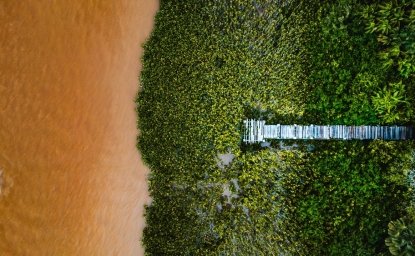Preserving the Amazon: A Race Against Time
Researchers from the United States and the state of São Paulo met at a FAPESP (Foundation for Research Support of the State of São Paulo) symposium in Washington, DC to present the latest findings from their studies of the Amazon. The “FAPESP-U.S. Collaborative Research on the Amazon” meeting was organized in partnership with the U.S. Department of Energy and the Brazil Institute of the Wilson Center. One of the featured speakers was noted biodiversity expert, Tom Lovejoy. We spoke with him about the state of the Amazon and efforts to preserve its endangered ecosystem.











